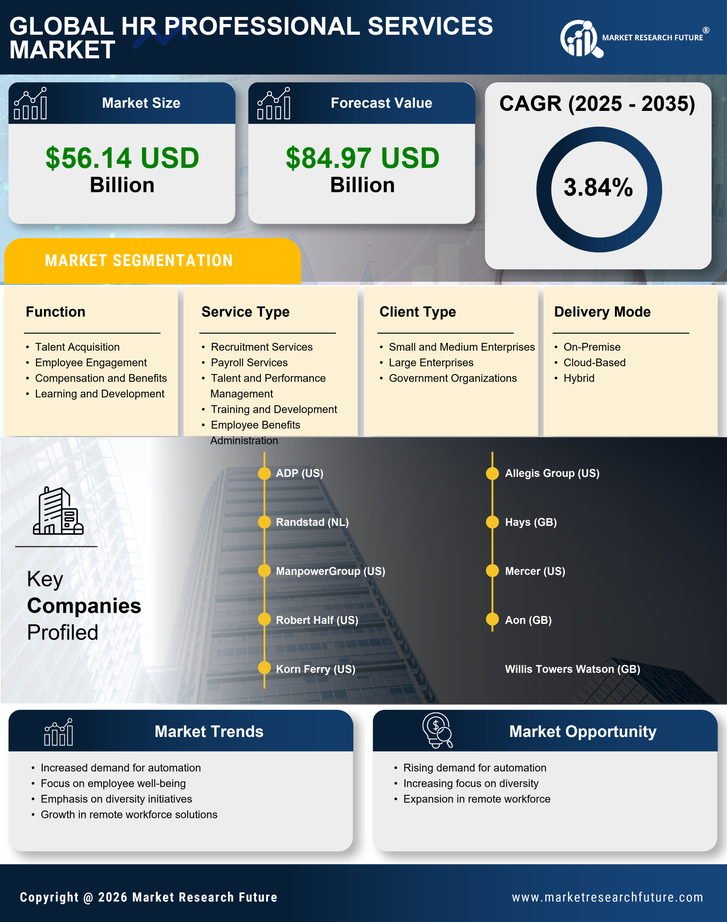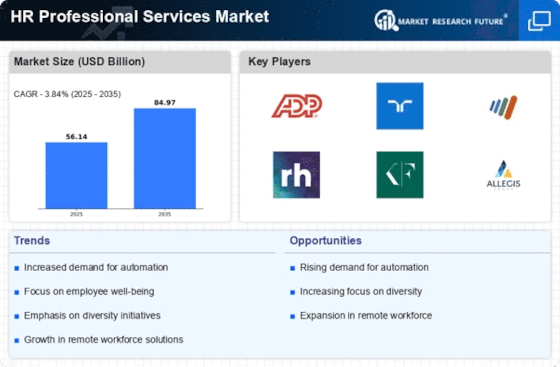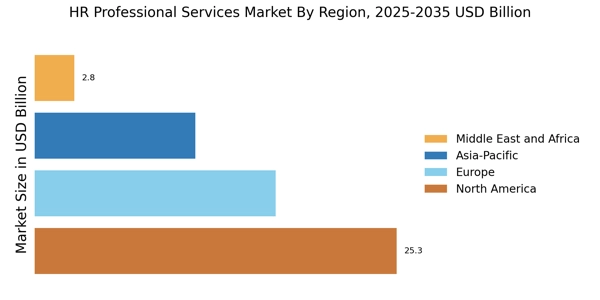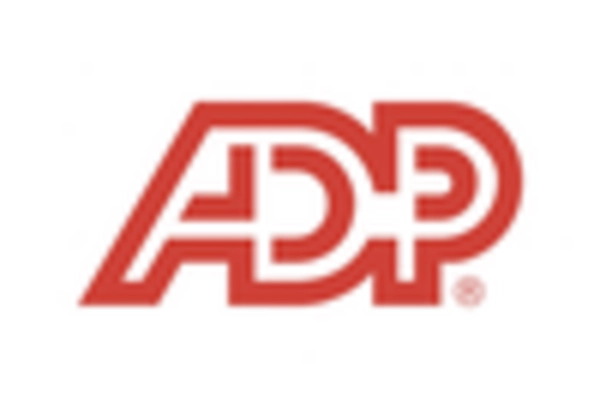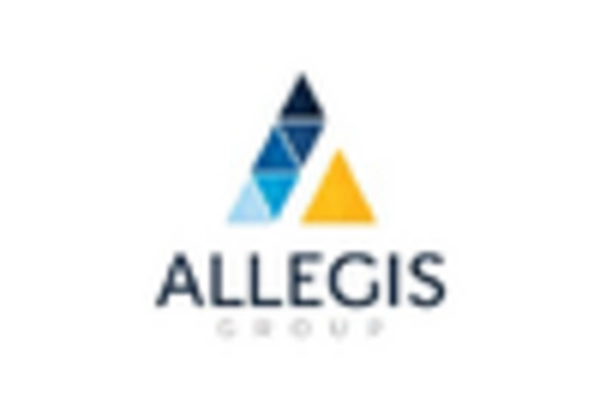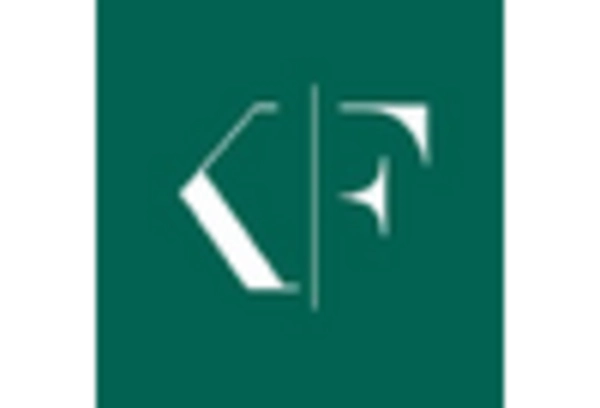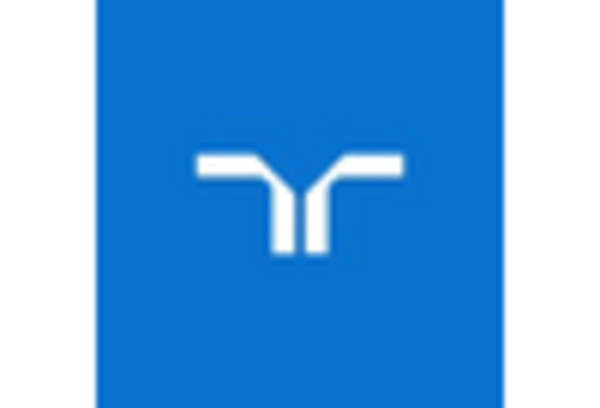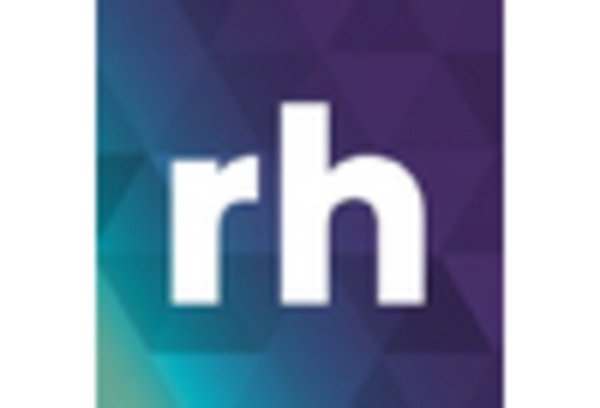Adoption of Data-Driven HR Strategies
The HR Professional Services Market is witnessing a paradigm shift towards data-driven HR strategies. Organizations are increasingly leveraging analytics to inform decision-making processes related to workforce management. The integration of data analytics into HR practices is projected to enhance operational efficiency and improve employee engagement. Recent studies indicate that companies utilizing data-driven approaches experience a 15% increase in productivity. This trend reflects a broader movement within the HR Professional Services Market, where data analytics tools are becoming essential for optimizing talent management and workforce planning. As organizations seek to harness the power of data, the demand for professional services that offer analytical insights is likely to grow.
Regulatory Compliance and Risk Management
The HR Professional Services Market is significantly influenced by the increasing complexity of regulatory compliance and risk management. Organizations are facing a myriad of employment laws and regulations that vary by region, making compliance a critical focus. The demand for professional services that assist in navigating these regulations is on the rise. It is estimated that companies spend over 20% of their HR budgets on compliance-related activities. This trend underscores the necessity for expert guidance in managing risks associated with employment practices. As regulations evolve, the HR Professional Services Market is positioned to provide essential support, ensuring organizations remain compliant while minimizing potential liabilities.
Focus on Employee Training and Development
The HR Professional Services Market is experiencing a heightened emphasis on employee training and development initiatives. Organizations are increasingly investing in upskilling and reskilling their workforce to adapt to rapid technological advancements and changing market demands. It is estimated that companies allocate approximately 3% of their total payroll to employee training programs. This investment is crucial for fostering a culture of continuous learning and enhancing employee retention rates. As the labor market evolves, the HR Professional Services Market is responding by providing tailored training solutions that align with organizational goals. This focus on development not only improves employee performance but also positions companies competitively in their respective industries.
Increased Demand for Talent Acquisition Services
The HR Professional Services Market experiences a notable surge in demand for talent acquisition services. Organizations are increasingly recognizing the importance of attracting and retaining top talent in a competitive landscape. According to recent data, the talent acquisition segment is projected to grow at a compound annual growth rate of approximately 10% over the next five years. This growth is driven by the need for specialized skills and the evolving nature of work, which necessitates a more strategic approach to recruitment. Companies are investing in professional services to enhance their employer branding and streamline their hiring processes. As a result, the HR Professional Services Market is adapting to meet these demands, offering innovative solutions that align with the changing workforce dynamics.
Rise of Remote Work and Flexible Employment Models
The HR Professional Services Market is significantly impacted by the rise of remote work and flexible employment models. As organizations adapt to changing workforce preferences, there is a growing need for professional services that facilitate remote work arrangements. Recent surveys indicate that over 70% of employees prefer flexible work options, prompting companies to rethink their HR strategies. This shift necessitates the development of policies and practices that support remote work while maintaining productivity and employee engagement. The HR Professional Services Market is evolving to provide solutions that address these challenges, including virtual onboarding, remote team management, and performance tracking. This trend is likely to continue shaping the future of work.
